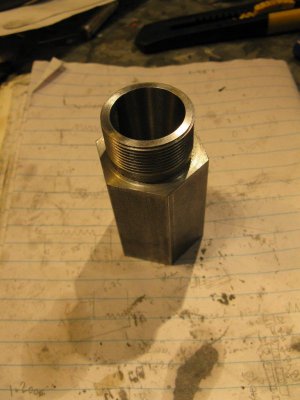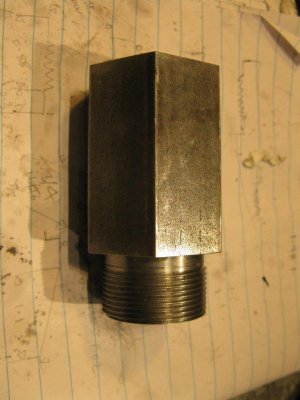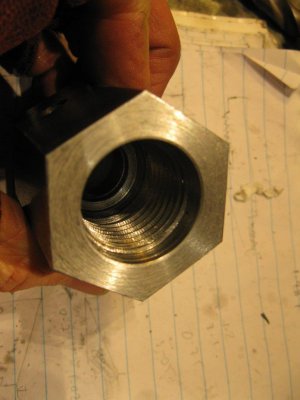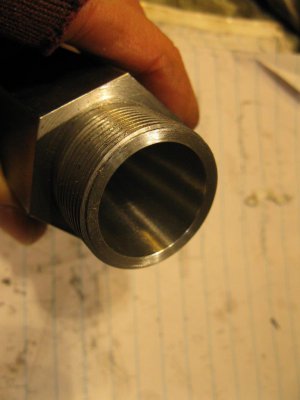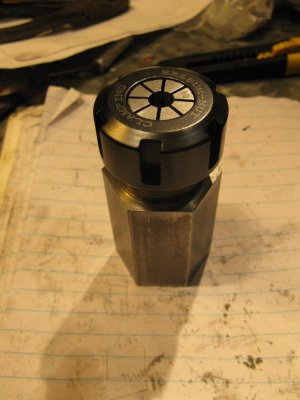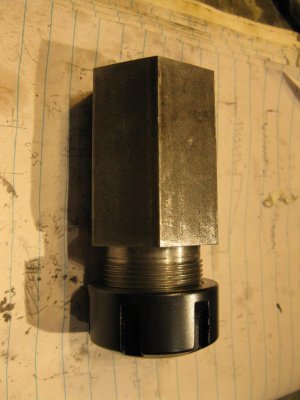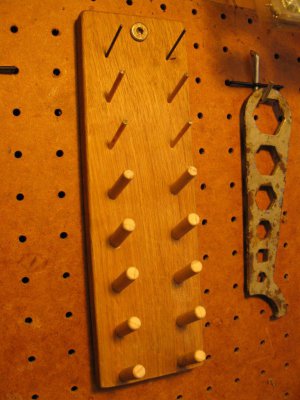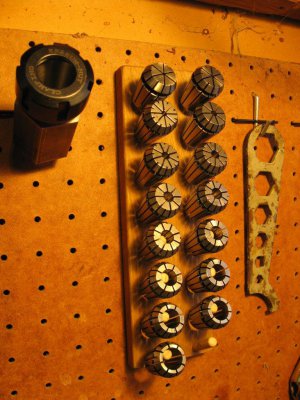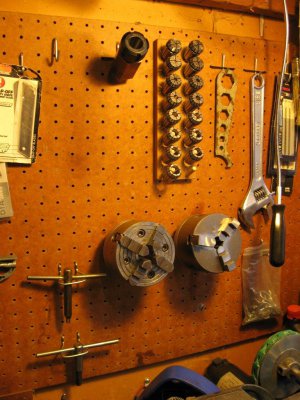didn't have any oil paint, but I used a thin coat of fabric paint which worked almost as well as I'd hoped - thanks Andre! Went from rubbing paint off the bottom 1/2 of the collet to rubbing it off the whole length.
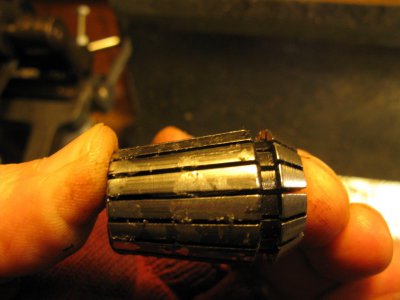
then, being an inquisitive smart arse, I thought I'd try grinding the taper. Probably shouldn't have, but it looks nice. Strapped my Dremel extension to the boring bar and very carefully had at it
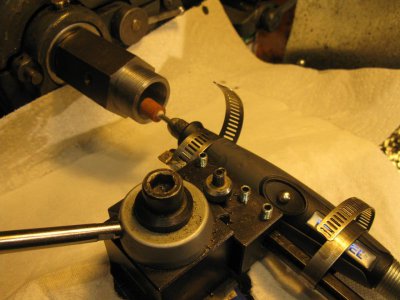
sparks flying! Adjusted 1/2 thou at a time and did several "spring" passes in between. Took about 2 thou to smooth out all the tool marks. I took a video but it's really not very interesting.
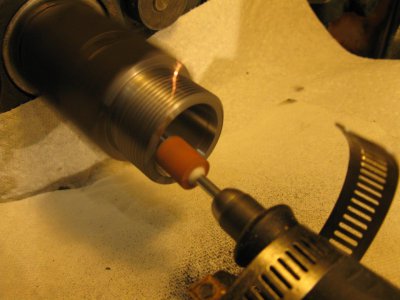
Grinding done. Oddly the bore seemed slightly out of round as I was grinding - you could hear the pitch change rhythmically. This might be the cause of problems I'll talk about in a bit
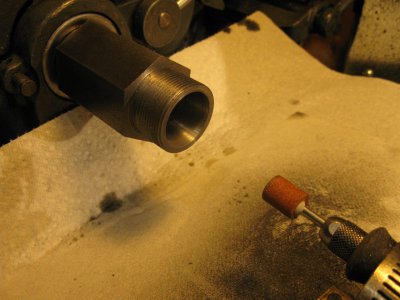
looks and feels damn nice though
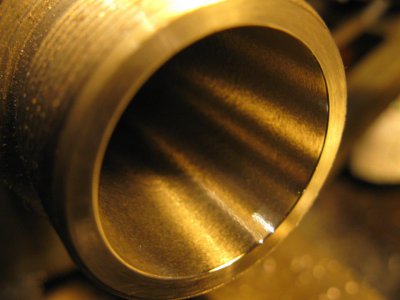
my DTI didn't want to work in the cold (18F) so I used my DI instead. Less than 0.0005 total run out using a 0.377 gage pin (had 3 thou until I remembered to tighten the nut, doh!)
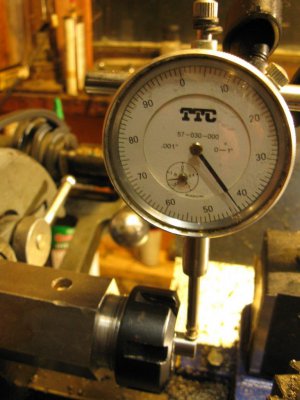
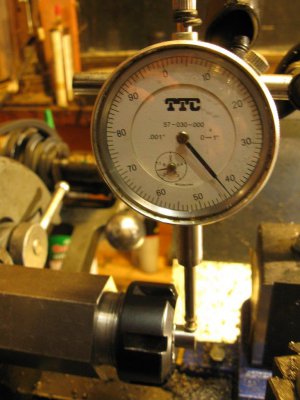
about 1 thou 1in out
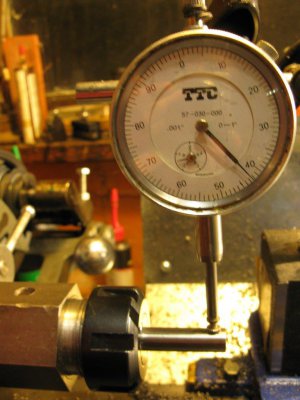
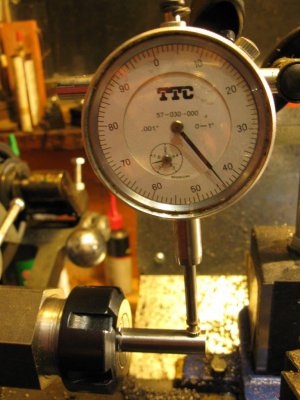
this is a 14mm bar from an old dot matrix printer, which in theory should be perfectly round and straight. About 1.5thou end to end (without turning the rod) over 6in
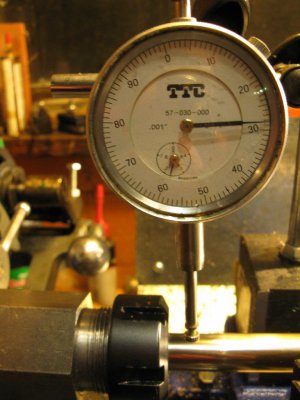
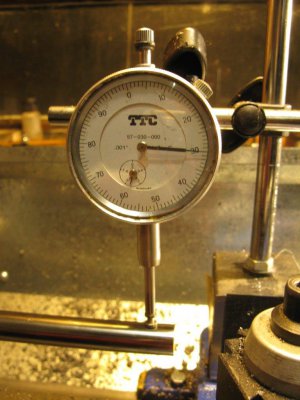
but about 8thou total run out when I rotated it. I tried the other one I have too and got the same results
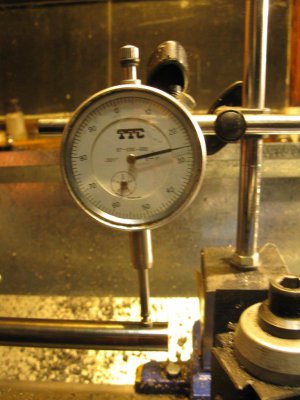
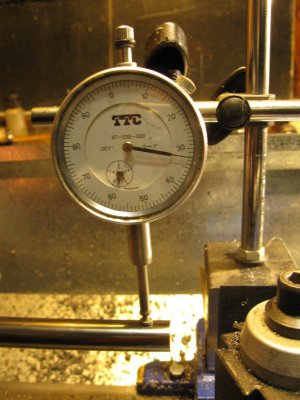
at the nose it was still about 1/2 thou.
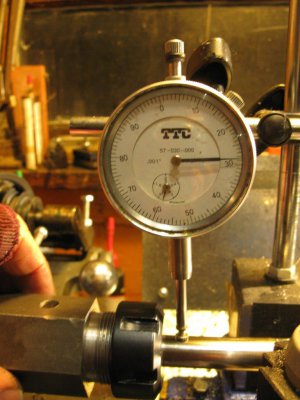
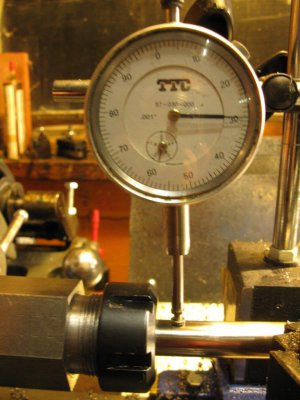
so, not terrible but not great either. I don't have anything better to test run out with than this unfortunately - I have a couple of other bars from the printer, but these ones are more likely to be true than anything else.
Possible causes - it was late and I was excited to test it, so I didn't do a very good job of cleaning the chuck out after grinding it. So fingers crossed it's just me being an idiot.
The slightly out of roundness feeling I got while grinding - could it have been true and then something I did during grinding made it out of true? The compound set up was the same and even though the set up wasn't ideal, the "out of roundness feeling" came through on the very first light touch pass, when the grinding stone was barely kissing the metal.
Is it worth trying to indicate the taper? How? At different depths, rotating the chuck? I can't do a single front to back reading as the compound screw has a slight bend in it so the tip will wiggle in an out just because of that.
The only 2 solutions I can think of would be to recut the taper (sadness

at loss of pretty ground finish) or to chuck up that printer bar in my 4 jaw, dial it true (radially and axially), mount the chuck to that and then take a skim pass off the collet chuck spindle register.
Ideas?


















